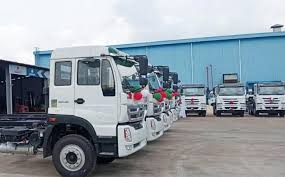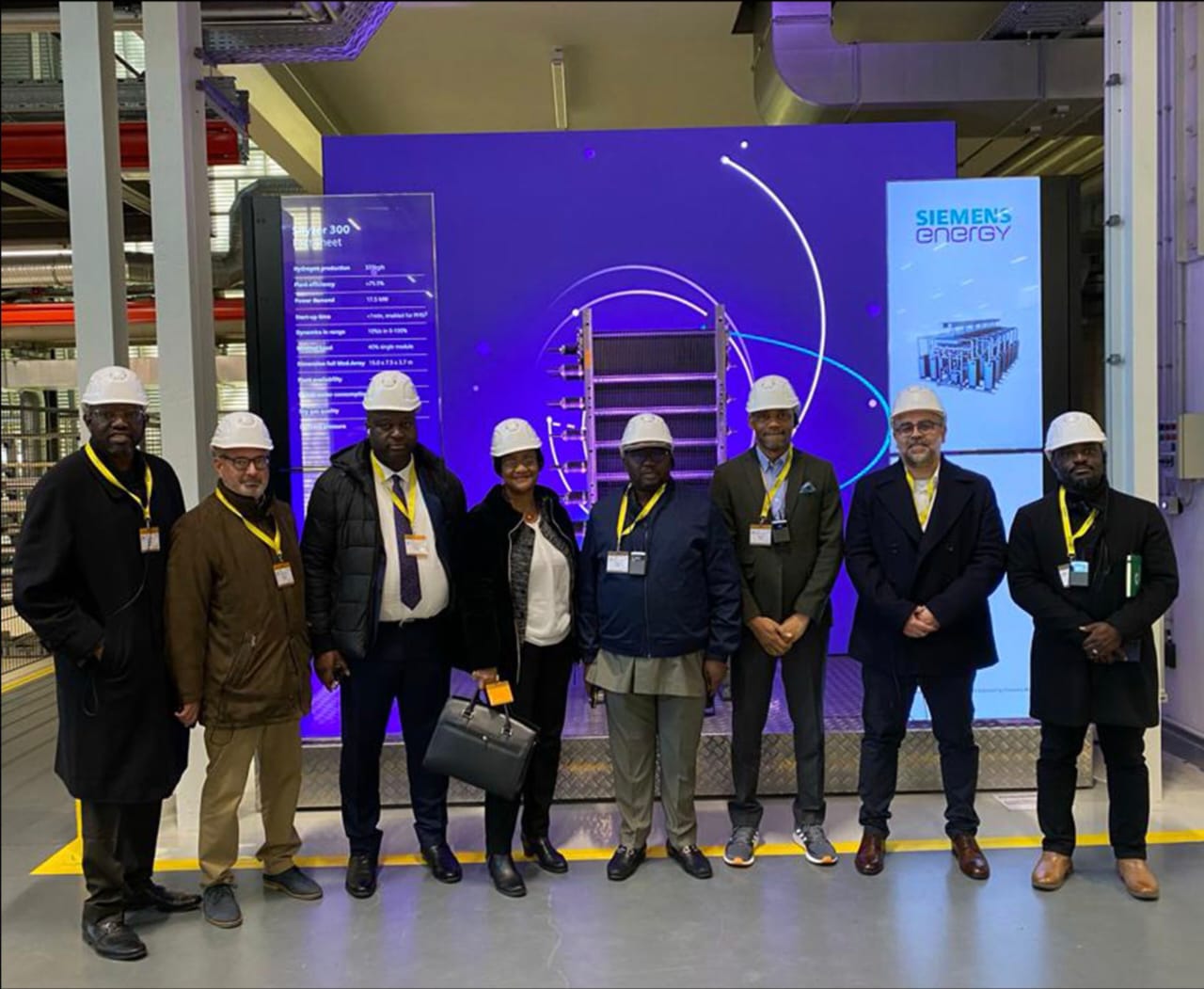ILARO, Nigeria – August 25, 2025 – In a robust commitment to enhancing road safety across Nigeria’s highways, Dangote Cement Plc has subjected no fewer than 1,500 truck drivers to comprehensive screening exercises to evaluate their mental, psychological, and physical fitness for safe driving. The announcement was made by the company’s Group Managing Director, Arvind Pathak, during a press briefing following his presentation at the 2025 Annual Drivers’ Retreat held in Ilaro, Ogun State. This initiative underscores Dangote Cement’s dedication to prioritizing safety, transparency, and ethical practices in its operations, particularly in response to Nigeria’s mounting road safety challenges. This report delves into the details of the screening process, its significance in the context of Nigeria’s transportation sector, the company’s broader safety initiatives, and the implications for public safety and economic stability.
A Comprehensive Screening Process
The 2025 Annual Drivers’ Retreat, held in Ilaro, Ogun State, served as a platform for Dangote Cement to showcase its intensified efforts to ensure the safety of its fleet and other road users. Speaking to journalists, Arvind Pathak outlined the company’s rigorous recruitment and screening protocols, which have been enhanced to address the growing concerns over road accidents in Nigeria. “Every driver employed by Dangote Cement is required to undergo a carefully designed and meticulously executed recruitment process,” Pathak stated. “This includes possession of a valid Class G driver’s license, background verification of both the driver and their guarantors, and a thorough medical assessment.”
The medical evaluation is a cornerstone of the screening process, encompassing vision screening (eye tests), blood pressure checks, body mass index (BMI) assessments, random blood sugar (RBS) testing, and drug and alcohol screening. Pathak revealed that in the past two months alone, over 1,500 prospective drivers successfully completed this process, with only those meeting all prescribed standards certified to operate Dangote Group vehicles. “Our focus on safety does not stop at recruitment,” he emphasized. “All drivers undergo mandatory pre-trip medical checks, carried out by licensed nurses and doctors, to ensure they are fit to drive on each journey.”
The screening process also includes advanced measures to detect substance use, with tests capable of identifying drug or alcohol consumption within a three-month detection window. This ensures that any history of substance abuse is flagged before employment, reducing the risk of impaired driving. Additionally, drivers are required to complete a two-week intensive training program, consisting of twelve safety modules, practical driving tests, and written examinations. This comprehensive approach reflects Dangote Cement’s commitment to building a workforce of highly skilled and responsible drivers capable of navigating Nigeria’s challenging road networks.
Addressing Nigeria’s Road Safety Crisis
The intensified screening process comes at a critical time for Nigeria, where road safety remains a pressing concern. According to the Federal Road Safety Corps (FRSC), Nigeria recorded over 10,000 road traffic crashes in 2024, resulting in thousands of deaths and injuries. Factors such as poor road conditions, reckless driving, and inadequate vehicle maintenance contribute to the high accident rate, with commercial trucks often implicated due to their size and frequency on highways. The National Bureau of Statistics (NBS) reported in July 2025 that diesel prices, a key factor in transportation costs, surged by 29.72% year-on-year to ₦1,789.45 per litre, adding economic pressure to logistics companies and potentially impacting driver welfare and safety practices.
Dangote Cement, as one of Nigeria’s largest cement manufacturers and a major operator of heavy-duty trucks, recognizes its responsibility to lead by example in addressing these challenges. With thousands of trucks transporting cement across the country’s highways, the company’s operations have a significant impact on road safety. Pathak stressed that safety is at the forefront of Dangote’s priorities, stating, “As a regular and significant road user, we recognize our responsibility to protect lives and property while upholding transparency, ethical practices, and clear safety protocols designed to reduce the risk of accidents.”
The company’s collaboration with the Nigeria Police and other relevant authorities further demonstrates its commitment to accountability. Pathak noted that Dangote Cement routinely supports investigations into reported incidents, implementing recommendations to enhance public safety. “We are a responsible organization that consistently collaborates with law enforcement to uncover the facts and strengthen our safety measures,” he said. This proactive approach sets a benchmark for other logistics companies in Nigeria, where lax safety standards have often been criticized.
A Holistic Approach to Driver Training and Welfare
Beyond the initial screening, Dangote Cement’s commitment to road safety extends to continuous training and retraining of its drivers. The 2025 Annual Drivers’ Retreat provided an opportunity to reinforce these efforts, with sessions focused on defensive driving, vehicle maintenance, and compliance with traffic regulations. The two-week training program for new drivers covers twelve safety modules, including hazard recognition, emergency response, and fatigue management, ensuring that drivers are well-equipped to handle the challenges of long-haul transportation.
Pathak emphasized that the company’s investment in driver training is not a one-time effort but an ongoing process. “Our focus on safety is continuous,” he said. “We provide regular retraining to ensure that our drivers remain up-to-date with the latest safety standards and technologies.” This includes workshops on advanced vehicle technologies, such as anti-lock braking systems (ABS) and electronic stability control (ESC), which are increasingly common in modern trucks.
Driver welfare is also a key component of Dangote’s strategy. Recognizing that fatigue and poor health can contribute to accidents, the company conducts pre-trip medical checks to ensure drivers are physically and mentally fit for each journey. These checks, performed by licensed medical professionals, include monitoring for signs of fatigue, stress, or substance use. The company also provides competitive salaries, health insurance, and rest facilities at its depots to support driver well-being. “A healthy and motivated driver is a safe driver,” Pathak said. “We are committed to creating a supportive work environment that prioritizes our drivers’ health and safety.”
The Broader Context: Nigeria’s Transportation and Economic Landscape
Dangote Cement’s intensified focus on road safety must be understood within the broader context of Nigeria’s transportation and economic challenges. The country’s road network, spanning over 200,000 kilometers, is plagued by poor maintenance, with many highways riddled with potholes and lacking proper signage. The NBS’s July 2025 Diesel Price Watch report highlights the economic pressures facing the logistics sector, with diesel prices in states like Benue (₦2,341.46 per litre), Adamawa (₦2,163.88), and Plateau (₦2,029.71) among the highest in the country. These costs increase operational expenses for companies like Dangote, which rely heavily on diesel-powered trucks.
Nigeria’s high inflation rate, reported at 21.88% in July 2025, further complicates the economic landscape. Food inflation, at 22.74%, has driven up the cost of living, affecting drivers’ purchasing power and increasing the financial strain on logistics companies. The World Bank estimates that 38.9% of Nigerians live below the poverty line, underscoring the socio-economic challenges that impact both workers and businesses. In this context, Dangote’s investment in driver screening and training is not only a safety measure but also a strategic effort to maintain operational efficiency and competitiveness.
The company’s role as a leading cement manufacturer also places it at the heart of Nigeria’s infrastructure development. Cement is a critical input for construction projects, from roads and bridges to housing and commercial buildings. By ensuring safe and reliable transportation of its products, Dangote contributes to the broader goal of economic growth and development. However, the high cost of diesel and the poor state of roads pose ongoing challenges, requiring innovative solutions and collaboration with government agencies.
Stakeholder Reactions: Praise and Calls for Broader Action
The announcement of the screening of 1,500 truck drivers has elicited a range of reactions from stakeholders, reflecting both praise for Dangote’s initiative and calls for broader action to address Nigeria’s road safety crisis. The Federal Road Safety Corps commended Dangote Cement for its proactive approach, with Corps Marshal Dauda Ali Biu describing the screening process as a model for other companies. “Dangote’s commitment to rigorous driver screening and training sets a high standard for the logistics industry,” Biu said. “We encourage other companies to follow suit to reduce road crashes and save lives.”
The National Association of Road Transport Owners (NARTO) also praised the initiative but urged Dangote to share its best practices with smaller operators. “Many small-scale transport companies lack the resources to implement such comprehensive screening,” said NARTO president Alhaji Musa Abdullahi. “Dangote could lead industry-wide efforts to improve safety standards through partnerships and training programs.”
Civil society groups, such as the Road Safety Advocacy Network, welcomed the initiative but emphasized the need for government intervention to address systemic issues. “Dangote’s efforts are commendable, but road safety requires better roads, stricter enforcement, and public awareness campaigns,” said spokesperson Fatima Usman. “The government must complement private-sector initiatives with policy reforms.”
Drivers employed by Dangote expressed appreciation for the company’s focus on their welfare. “The medical checks and training make me feel valued,” said Musa Ibrahim, a truck driver based in Ogun State. “It’s not just about driving—it’s about keeping us safe and healthy.” However, some drivers called for additional support, such as subsidized fuel or better rest facilities, to alleviate the economic pressures of high diesel prices.
Implications for Public Safety and Economic Stability
Dangote Cement’s intensified screening and training efforts have significant implications for public safety and economic stability in Nigeria. By ensuring that only qualified and healthy drivers operate its trucks, the company reduces the risk of accidents, which claim thousands of lives annually. The FRSC reported that human factors, such as reckless driving and fatigue, account for over 70% of road crashes in Nigeria. Dangote’s focus on mental, psychological, and physical fitness addresses these factors, potentially saving lives and reducing property damage.
Economically, the initiative supports the efficiency of Nigeria’s logistics sector, which is critical for the supply chain of goods like cement. Safe and reliable transportation ensures that construction projects are completed on time, contributing to infrastructure development and economic growth. The company’s collaboration with law enforcement also enhances transparency and accountability, setting a precedent for corporate responsibility in the logistics industry.
However, the initiative also highlights the broader challenges facing Nigeria’s transportation sector. The high cost of diesel, poor road conditions, and lack of standardized safety protocols across the industry limit the impact of individual company efforts. To achieve systemic change, Dangote’s initiative must be complemented by government policies, such as road rehabilitation, stricter traffic enforcement, and subsidies for fuel-efficient vehicles.
Policy Recommendations
To build on Dangote Cement’s efforts and address Nigeria’s road safety crisis, the following recommendations are proposed:
Industry-Wide Standards: The government should establish mandatory safety standards for all logistics companies, including driver screening and training requirements, modeled on Dangote’s approach.
Road Infrastructure Investment: Federal and state governments should prioritize road maintenance and rehabilitation to reduce accidents caused by poor road conditions.
Public-Private Partnerships: Dangote should collaborate with the FRSC, NARTO, and other stakeholders to develop industry-wide training programs for small-scale operators.
Fuel Cost Mitigation: The government should explore subsidies or tax relief for diesel to reduce operational costs for logistics companies, enabling them to invest in safety measures.
Driver Welfare Programs: Dangote and other companies should expand welfare initiatives, such as rest facilities and mental health support, to address driver fatigue and stress.
Conclusion
Dangote Cement Plc’s rigorous screening of 1,500 truck drivers marks a significant step toward enhancing road safety and promoting corporate responsibility in Nigeria’s logistics sector. By prioritizing mental, psychological, and physical fitness, the company is setting a high standard for driver recruitment and training, addressing the human factors that contribute to road accidents. The initiative, announced at the 2025 Annual Drivers’ Retreat in Ilaro, reflects Dangote’s commitment to protecting lives, property, and the efficiency of its operations.
In a country grappling with high inflation, rising fuel costs, and a persistent road safety crisis, Dangote’s efforts offer a beacon of hope. However, systemic change requires collaboration between the private sector, government, and civil society to address structural challenges like poor roads and inadequate regulations. As Nigeria looks to build a safer and more prosperous future, Dangote Cement’s initiative serves as a model for how corporate leadership can drive progress in one of the nation’s most critical sectors.






